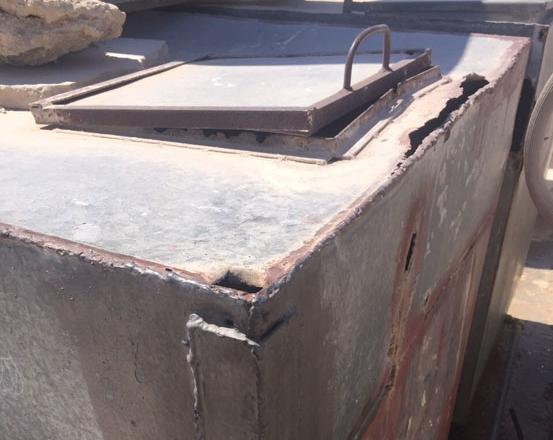You are here
Authorities sterilise household tanks affected by Irbid wastewater leakage
By Hana Namrouqa - Jul 10,2014 - Last updated at Jul 10,2014
AMMAN — Water authorities on Thursday cleaned and sterilised the tanks of 30 households in Irbid Governorate, 80km north of Amman, after the houses received polluted water, according to an official.
Residents of Enbeh town, in the Northern Mazar District, complained to the Yarmouk Water Company, the water and wastewater operator in the northern region, about the foul odour and taste of the water they received as part of the distribution programme, Yarmouk Water Company Director Mohammad Rababaa said on Thursday.
“Emergency teams from the company, the Water Authority of Jordan [WAJ] and the Irbid Health Department responded to the complaints. Water supply in the suspected pipeline, which feeds 30 subscribers, was suspended,” Rababaa said.
Samples collected by WAJ’s Central Labs Directorate indicated that the water was polluted with leaking wastewater from a nearby cesspit, according to the official.
“The roof tanks of all the subscribers were washed out and sterilised and the company provided them with clean water via tankers,” Rababaa said.
He noted that technical teams identified the cesspit that was the source of the pollution, and it was not built according to standards, which caused wastewater to leak and led to the deterioration of the pipeline over time.
Cesspits cause recurring pollution incidents, especially in the north, because some of them are not built according to standards, or their owners neglect having them emptied which causes them to overflow and reach part of the water network.
Rababaa said the teams replaced the pipe that was damaged due to sewage leakage.
Water experts and officials attribute such "frequent" pollution incidents also to the intermittent pumping of water in Jordan. They say that pumping water for a few hours once a week creates negative pressure in the pipe once the water flow stops and surrounding pollutants are sucked in through ruptures in the network.
High water pressure and constant flow prevent pipelines from corroding, they say, noting that this is not the case in Jordan.
Because of scant water resources in the Kingdom, categorised as the third poorest country in the world in terms of water availability, a water distribution programme was introduced in the early 1980s, under which households receive water for a few hours, usually once a week.
Related Articles
The Ministry of Water and Irrigation will float tenders by the second quarter of this year for implementing new projects to link more households in Irbid Governorate to the sewage network.
AMMAN — A total of 1,816 households in Irbid's Beit Ras village and adjacent areas in the northern governorate's east will be connected to t
AMMAN — Only 5 per cent of domestic water is used for drinking and cooking purposes, according to a new study, which said that 45 per















